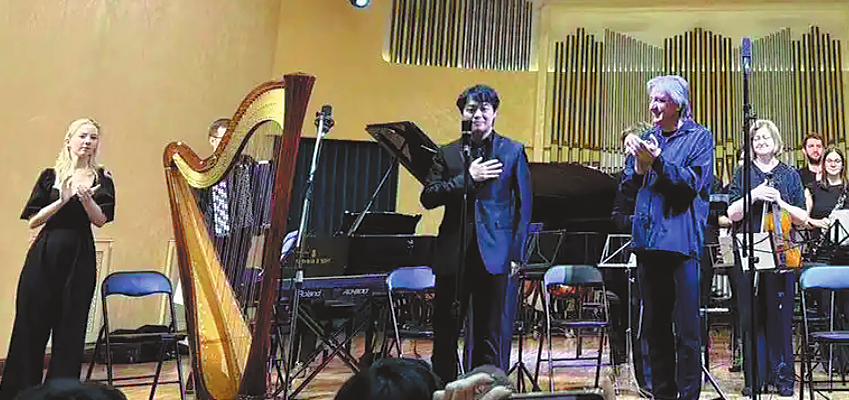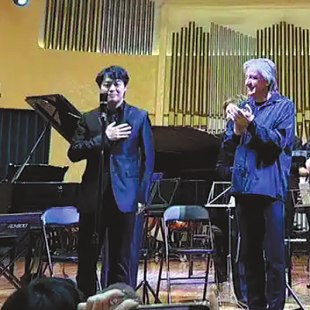Melodies string together ties between China, Russia


MOSCOW — When the first musical notes filled the concert hall, a unique fusion of melodies drawn from China's Peking Opera and Russia's strings and piano swept the audience into a seamless cultural dialogue.
At a recent concert in Moscow, young Chinese composer Wang Chenxu premiered seven new works. The pieces explored themes ranging from Beijing youth to the ancient Silk Road, each infused with musical elements from both countries.
"Young musicians like us are not just cultural messengers, but pioneers shaping a common artistic memory," says Wang, a graduate of Russia's prestigious Moscow Tchaikovsky Conservatory.
With 2024 and 2025 designated as the China-Russia Years of Culture, musical exchanges like this concert have become increasingly frequent. From classrooms to concert halls, cultural dialogues between musicians and conservatories from both sides are deepening.
"Chinese and Russian music flow into each other like two great rivers, nurturing new beauty as they meet," says Wu Zhiwu, deputy dean of the China Conservatory of Music.
Wu recently led a delegation from his university to sign an agreement with the Gnesin Russian Academy of Music, one of Russia's most prestigious art institutions, to advance new cooperation projects, promoting the co-publication of teaching materials and student exchange programs.
In the first quarter, the two sides established joint academic centers to push resource sharing, talent cultivation, and collaborative research in music and culture.
As the 2026-27 China-Russia Years of Education approach, leading conservatories of both nations are expanding cooperation in training young musicians. At the Moscow Tchaikovsky Conservatory, Chinese students have become the largest group of foreign students.
"Learning how to make Eastern and Western musical instruments converse is at the core of what we do," says Bai Bofan, a Chinese classical piano student, adding that the expanding exchanges offer a great opportunity for young people from both countries to foster cooperation and understanding.
"Music is more than a bridge. It is a tower of understanding," says composer Wang. "It's not only where cultures meet, but where they create together."
Igor Dronov, an honored artist of Russia and conductor of the orchestra for Wang's concert, says that the blending of Eastern and Western musical traditions symbolizes shared creativity, bringing people closer together.
"We aim to make Chinese and Russian works part of the everyday musical lives of both peoples," says Peng Cheng, head of the center for China-Russia musical exchange at the Shanghai Conservatory of Music. "Through cosponsored concerts and collaborations, we hope to achieve meaningful and lasting musical dialogue."
Xinhua





































